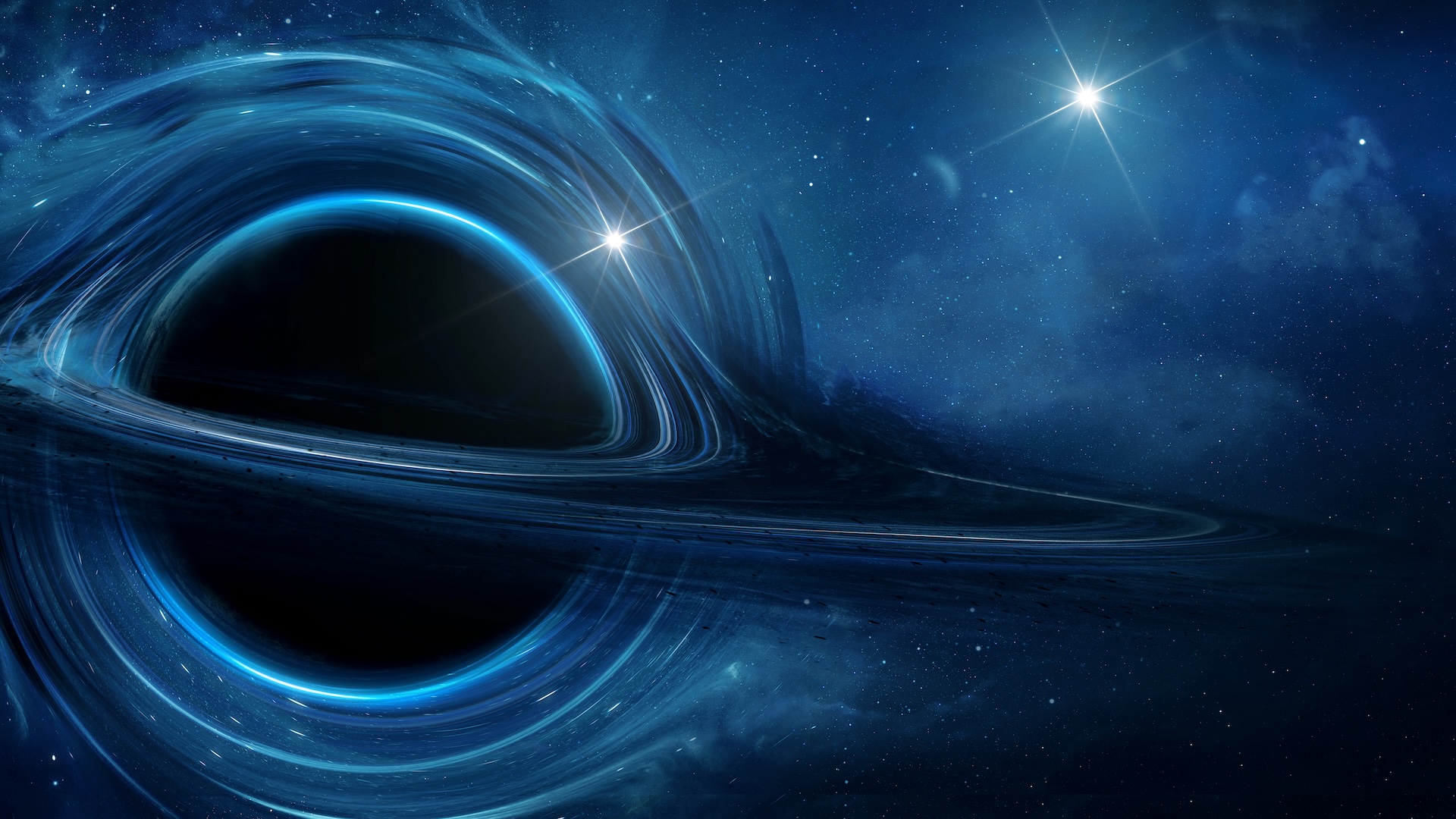
In 1974, Stephen Hawking put forward an intriguing idea: Using the principles of quantum physics, he predicted that even though nothing is supposed to escape a black hole’s event horizon, these cosmic beasts can actually emit particles. And by ejecting these particles, black holes will shrink over a very long time, eventually evaporate and possibly explode.
Hawking sparked a debate that has continued for more than 50 years. The idea that black holes evaporate puts two fundamental tenets of physics — general relativity and quantum mechanics — into conflict.
But, assuming that Hawking and others are correct, how would a black hole evaporate, leaving nothing behind? Before we explore this mind-bending idea, it’s important to know that theoretical physicists are still debating how it’s possible. But in the past few decades, a number of potential explanations have emerged for how black holes seem to defy the rules of our universe by disappearing.
“We spent the last 50 years fighting about it,” Daniel Harlow, a physicist at MIT, told Live Science. “I would say now we understand it a lot better than Hawking did.”
Related: Could a black hole devour the universe?
Albert Einstein predicted the existence of black holes in 1915 with his theory of general relativity, which explains how gravity is a property of space-time’s curvature. Based on this theory, black holes are objects with a lot of mass compressed into a singular area, where gravity is so strong that even light can’t escape its pull.
“According to general relativity, everything can only go inside [a black hole] and nothing can ever come out,” said Heino Falcke, an astrophysicist at Radboud University in the Netherlands who was involved in capturing the first image of a black hole in 2019. “Everything thrown in is completely crushed into a point.”
But around 60 years later, Hawking’s calculations showed that perhaps not everything is crushed by black holes. In quantum mechanics, pairs of particles — particles and antiparticles — blink in and out of existence. These particles usually cancel each other out.
But Hawking argued that fluctuations of fields at the event horizon, a black hole’s “point of no return” beyond which nothing can escape, means that these particles don’t always cancel out: One of those particles can get sucked into the black hole, while the other gets ejected into space, leaving behind a cloud called Hawking radiation. As more and more particles are ejected, black holes begin to lose energy and mass, and eventually disappear, according to this theory.
This process would be very slow. A black hole with a mass of the sun could take 10^67 years to fully evaporate — longer than the current age of the universe. And scientists have yet to find evidence for this; black holes do not seem to release thermal radiation, meaning that Hawking radiation may not be detectable. Some scientists are trying to get a peek at this elusive radiation in labs and on tiny black holes, which are posited to evaporate more quickly than the ones in our galaxy would.
Black hole paradox
However, Hawking’s idea has a few caveats that lead to confounding questions. Evaporation introduces a conundrum called the black hole information paradox. If a black hole evaporates and disappears, the particles it leaves behind are missing information on the matter’s original state. This violates a core concept in physics — that a system in one point in time should determine, or reflect, its state in another — also known as predictability.
Scientists are still debating how to resolve this paradox. “The amazing thing about Hawking’s paradox is that any resolution of it requires you to give up some sacred principle of physics,” Harlow said. Hawking’s solution was to give up predictability, as he lamented in a 1976 paper.
Some physicists are examining the laws around thermodynamics to solve this discrepancy, and how entropy affects quantum information. Another group of physicists is examining locality, the principle that objects are directly influenced only by their immediate surroundings. They believe the information paradox can be resolved through something called quantum nonlocality — the idea that particles inside a black hole share their quantum state with correlated particles outside it.
Despite the progress in understanding black hole evaporation, mysteries continue to pile up. In a 2023 study in the journal Physical Review Letters, Falcke and colleagues argued that the information paradox may not be limited to black holes. By rederiving Hawking’s calculations, the team proposed that all objects may have the same problem. All things may be evaporating, thus deepening the puzzle.
“There’s something in the world we cannot explain,” Falcke said. “But, you know, by creating more mysteries, we may actually be a step closer to a solution eventually.”
